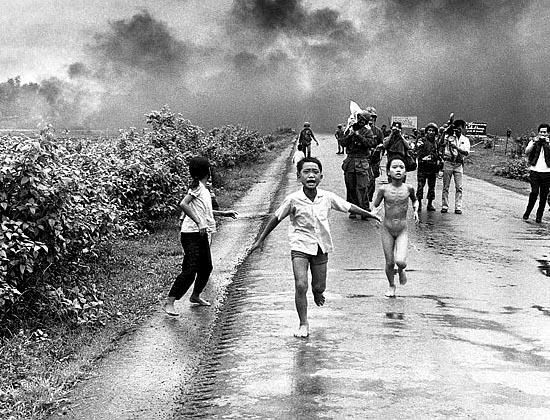
As I watched Secretary of State John Kerry stand before the lectern last Monday afternoon and give an impassioned speech decrying the use of chemical weapons in Syria, I was briefly transported back in time to about two years ago. I was in the Vietnamese town of Gia Nghia in the province of Dak Nong, casually strolling through the bustling streets and markets of this former war-ravaged city in an attempt to find some iced coffee.
That was when I saw her. A small child, a little girl who couldn’t have been more than three or four years old. She had the face of a tiny angel, with long, raven black hair that almost touched the ground. She was dressed in nothing but her underwear, but that wasn’t what made the sight of her odd. No, it was her three legs that caused me to stop and stare, unable to look away.
I doubt the girl was an unfortunate victim of a random birth defect. Many Vietnamese were and still are victims of chemical weapons dumped on their heads by the United States military. And the Vietnamese children of this generation are still falling prey to the radiation fallout of those attacks.
Vietnamese children were the furthest thing from Secretary Kerry’s mind during this speech, however. As Mr. Kerry pontificated about “moral obscenities” and essentially accused Syrian President Bashar al-Assad of war crimes, I was reminded of his own words to the Senate Foreign Relations Committee in April 1971 when the former Democratic candidate for President said he had “committed the same kinds of atrocities as thousands of others” in Vietnam. He talked of burning villages to the ground and spraying no-fire zones with bullets.
Usually it is men of the uniform who are the most apprehensive of heading into another war if they rise to a position of leadership in the country. And yet political actors such as Secretary Kerry and Senator John McCain, the latter having spent five years as a prisoner of war in the infamous Hanoi Hilton, seem to be the biggest war mongers there are. Maybe they have forgotten the picture of that little girl above, her skin dripping off of her as she tried to run away from a napalm attack from the U.S. Air Force.
Yes, we all care about innocent people being killed. No one is in favor of killing civilians. The images coming out of Syria, which clearly show some type of chemical weapons attack, are hard to stomach. But the question which needs to be asked is what will American meddling do?
Our meddling in Vietnam did not make the lives of the Vietnamese any better; in fact, it made it much worse. Our intervention and war in Iraq resulted in the deaths of hundreds of thousands of Iraqis, more than half a million according to some sources. That was a war launched against another dictator, Saddam Hussein, whom the U.S. had previously furnished chemical weapons to which were then used against Iran and later against Iraq’s Kurdish population. And then there was the “Arab Spring,” which created the current monstrosities in Libya and Egypt.
I’m not going to speculate on the potential geopolitical endgame to the Syrian conflict: the anticipated U.S. intervention, the al Qaeda terrorists, mostly from Saudi Arabia and Africa, who comprise the majority of the “Syrian rebel army” that Senator McCain wants to arm and fund, the alarming amount of influence that the puppet presidents and corrupt kings of the Gulf states have over American foreign policy, the roles of other important states such as Iran, Russia and Israel, and of course the military-industrial-complex that is always in the background.
But if the desired outcome is to put a halt to the bloodshed — and that is probably not the top priority for the war-makers because there is bloodshed in other places in the world that has been written about in this space previously and which continues to go unnoticed — then one couldn’t possibly choose intervention as the best option. Even a cursory reflection on American military history can tell you that it usually doesn’t end well: for innocent civilians nor for America’s reputation. And you know what they say about forgetting history.